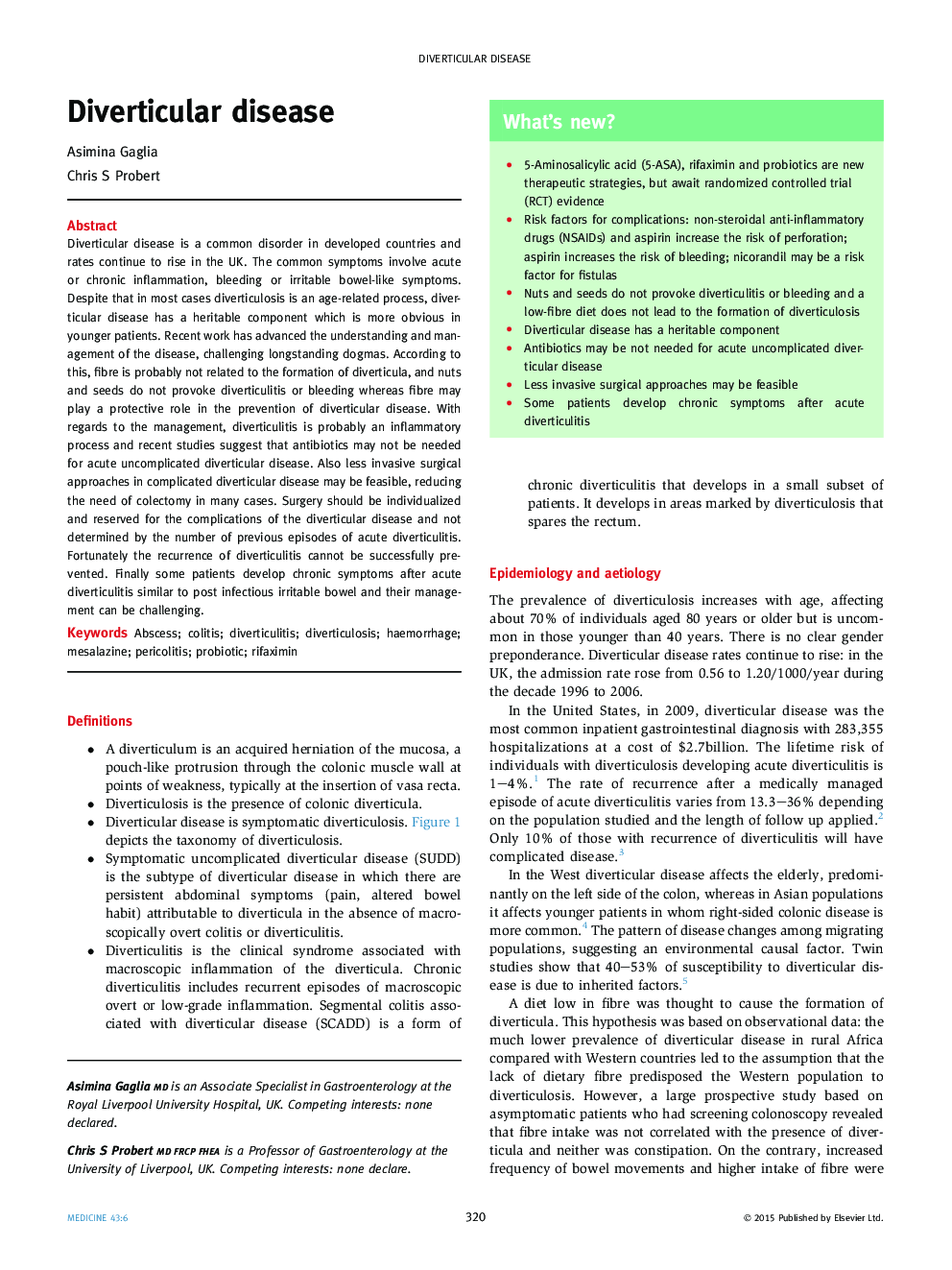| Article ID | Journal | Published Year | Pages | File Type |
|---|---|---|---|---|
| 3806723 | Medicine | 2015 | 4 Pages |
Diverticular disease is a common disorder in developed countries and rates continue to rise in the UK. The common symptoms involve acute or chronic inflammation, bleeding or irritable bowel-like symptoms. Despite that in most cases diverticulosis is an age-related process, diverticular disease has a heritable component which is more obvious in younger patients. Recent work has advanced the understanding and management of the disease, challenging longstanding dogmas. According to this, fibre is probably not related to the formation of diverticula, and nuts and seeds do not provoke diverticulitis or bleeding whereas fibre may play a protective role in the prevention of diverticular disease. With regards to the management, diverticulitis is probably an inflammatory process and recent studies suggest that antibiotics may not be needed for acute uncomplicated diverticular disease. Also less invasive surgical approaches in complicated diverticular disease may be feasible, reducing the need of colectomy in many cases. Surgery should be individualized and reserved for the complications of the diverticular disease and not determined by the number of previous episodes of acute diverticulitis. Fortunately the recurrence of diverticulitis cannot be successfully prevented. Finally some patients develop chronic symptoms after acute diverticulitis similar to post infectious irritable bowel and their management can be challenging.
